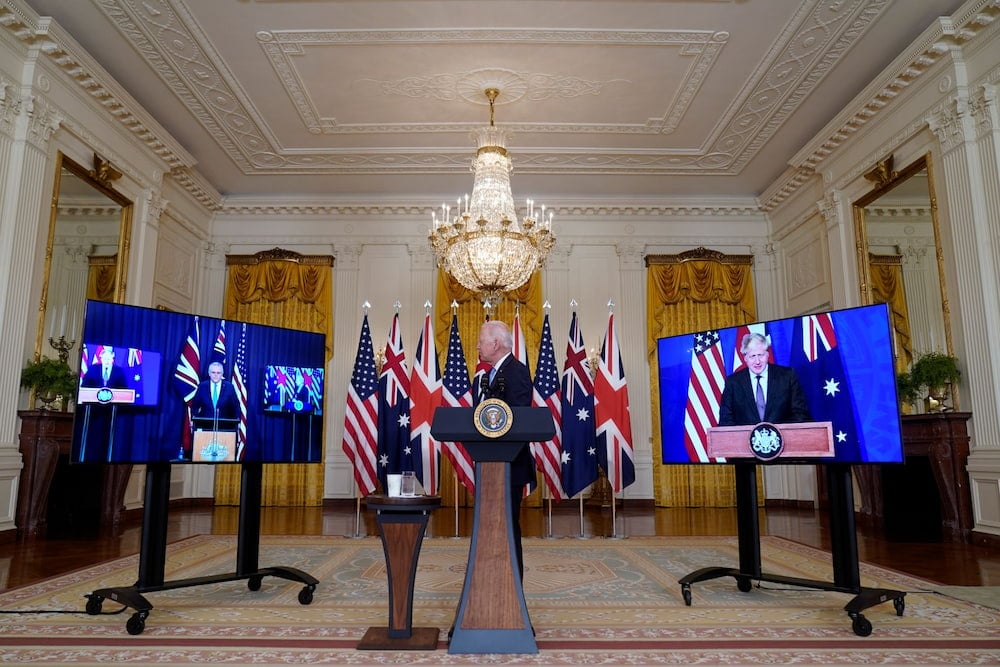US President Joe Biden has announced a new Indo-Pacific security alliance with the UK and Australia that will allow for greater sharing of defence capabilities, a move that could deepen a growing chasm in US-China relations.
Biden, British Prime Minister Boris Johnson and Australian Prime Minister Scott Morrison appeared together virtually to detail the new alliance, which will be called AUKUS.
“We all recognise the imperative of ensuring peace and stability in the Indo-Pacific over the long term,” said Biden, who said the new alliance reflects a broader trend of key European partners playing a role in the Indo-Pacific.
“We need to be able to address both the current strategic environment in the region and how it may evolve.”
Biden, who thanked “Boris” and “that fella Down Under” for their contributions, said the “future of each of our nations, and indeed the world, depends on a free and open Indo-Pacific enduring and flourishing in the decades ahead”.
The new security alliance is likely to be seen as a provocative move by China, which has repeatedly lashed out at Biden as he has sought to refocus US foreign policy on the Pacific.
Before the announcement, a senior administration official sought to play down the idea the alliance was meant to serve as a deterrent against China in the region.
The official, who spoke on the condition of anonymity, said the alliance’s creation was not aimed at any one country, and was about a larger effort to sustain engagement and deterrence in the Indo-Pacific by the three nations.
The three countries have agreed to share information in areas including artificial intelligence, cyber and underwater defence capabilities, the official said.
They announced plans to support Australia acquiring nuclear-powered submarines. To date, the only country the US has shared nuclear propulsion technology with is Britain.
Biden said Australia was not seeking to develop a nuclear weapons program and information sharing would be limited to helping it develop a submarine fleet.
The announcement of the new security alliance comes as the US-China relationship has deteriorated. Beijing has taken exception with Biden administration officials repeatedly calling out China over human rights abuses in Xianjing province, the crackdown on democracy activists in Hong Kong, and cybersecurity breaches originating from China, as well as Beijing’s handling of the coronavirus pandemic and what the White House has labelled as “coercive and unfair” trade practices.
Even as White House officials have spoken out about China, administration officials say they want to work with Beijing on areas of common interest, including curbing the pandemic and climate change.
Biden spoke by phone with China’s President Xi Jinping last week amid growing frustration on the American side that high-level engagement between the two leaders’ top advisers has been largely unfruitful.
The US and Australia, along with India and Japan, are members of a strategic dialogue known as “the Quad”. Biden is set to host fellow Quad leaders at the White House next week.
AAP
Get all the latest Canberra news, sport, entertainment, lifestyle, competitions and more delivered straight to your inbox with the Canberra Daily Daily Newsletter. Sign up here.



